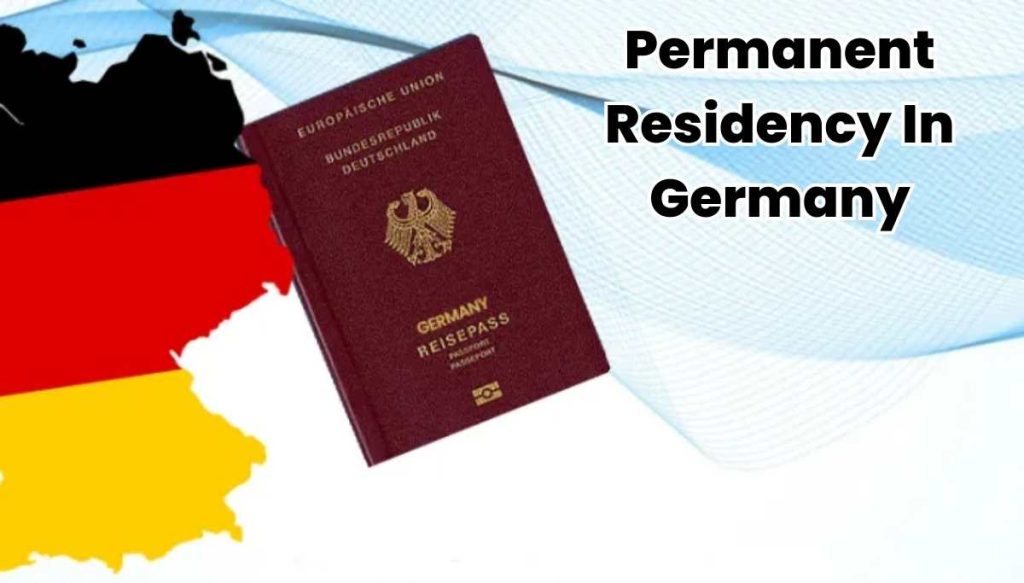Germany has become one of the most popular destinations for skilled workers and professionals looking to build stable, rewarding careers abroad.
With a strong economy, high-quality living standards, and growing demand for skilled labor, Germany jobs for immigrants are more accessible than ever. Whether you’re an engineer, IT professional, nurse, or tradesperson, Germany offers excellent opportunities to live and work legally through various visa programs.
In this article, you’ll learn everything you need to know about working in Germany as an immigrant — including the visa options, high-demand jobs, application process, and tips to help you successfully start your new life in Europe’s economic powerhouse.
Why Germany Attracts Immigrants
Germany’s economy is the largest in Europe and the fourth largest in the world. With industries like engineering, healthcare, IT, and manufacturing leading the way, the country constantly needs skilled professionals to fill critical roles. Due to its aging population and declining birth rate, Germany faces a talent shortage — meaning it actively welcomes immigrants who want to work and settle there.
The German government has made it easier for foreign professionals to live and work in Germany through immigration reforms like the Skilled Immigration Act and EU Blue Card. These laws make it possible for qualified workers from non-EU countries to secure work permits, long-term residency, and even permanent settlement.
Germany Skilled Worker Jobs: Who Can Apply
Under the Germany Skilled Worker Jobs program, immigrants with professional training, degrees, or work experience can apply for jobs in high-demand sectors. The Skilled Immigration Act (Fachkräfteeinwanderungsgesetz) recognizes both university graduates and vocationally trained professionals.
Eligible fields include:
-
Information Technology and Software Development
-
Engineering (Mechanical, Civil, Electrical)
-
Nursing and Healthcare
-
Construction and Skilled Trades
-
Logistics and Manufacturing
Employers in these sectors are actively hiring foreign professionals. Many German companies even sponsor work visas for immigrants with the right qualifications.
The EU Blue Card Germany Program
One of the best routes to legally work in Germany as an immigrant is through the EU Blue Card. It is designed for highly qualified professionals from non-EU countries who have a university degree and a valid job offer in Germany.
To qualify, you must meet the Blue Card Germany salary requirements — typically an annual salary of at least €45,300. For shortage occupations (like IT, engineering, and healthcare), the requirement can be lower, around €41,000.
Benefits of the EU Blue Card include:
-
Fast-track route to permanent residency (after 33 months or 21 months with B1-level German)
-
Family reunification rights
-
Freedom to work across EU countries (in some cases)
-
Access to social benefits and healthcare
This makes the Blue Card Germany one of the most attractive immigration options for skilled professionals globally.
Germany Job Seeker Visa for Foreigners
If you don’t yet have a job offer, the Germany Job Seeker Visa is the perfect starting point. This visa allows you to stay in Germany for up to six months to search for employment.
Requirements include:
-
A recognized qualification or degree
-
Proof of financial means to cover your stay
-
Valid health insurance
-
Motivation to work in your trained profession
Once you find a job, you can convert the Job Seeker Visa into a work permit or EU Blue Card without leaving Germany. It’s a great pathway for immigrants who want to explore job opportunities directly within the country.
Work Visa Germany Application Process
Getting a Germany Work Visa requires preparation and documentation. Here’s how to apply:
-
Secure a job offer or determine eligibility for a Job Seeker Visa.
-
Gather your documents – including passport, employment contract, proof of qualification, financial proof, and health insurance.
-
Submit your visa application at the German Embassy or Consulate in your home country.
-
Wait for processing (usually 4–12 weeks).
-
Once approved, travel to Germany and register your address with the local authorities.
After arriving, you will receive your residence permit for work. Always ensure your qualifications are officially recognized in Germany to avoid delays.
High-Demand Jobs in Germany for Immigrants
Germany is currently facing a shortage of skilled professionals in several sectors. Below are some of the most in-demand jobs for immigrants in Germany:
| Sector | In-Demand Roles |
|---|---|
| IT & Tech | Software Engineers, Data Analysts, Cybersecurity Experts |
| Engineering | Mechanical, Civil, and Electrical Engineers |
| Healthcare | Nurses, Doctors, Caregivers |
| Construction | Electricians, Welders, Plumbers |
| Logistics | Truck Drivers, Supply Chain Coordinators |
| Manufacturing | Technicians, Machine Operators, Quality Controllers |
These industries often provide visa sponsorship and competitive salaries, making them ideal for immigrants seeking to work in Germany long-term.
Germany Work Permit Requirements
To obtain a Germany work permit, applicants must meet the following requirements:
-
Valid employment offer from a German company
-
Recognized educational qualifications or training
-
Proof of sufficient income
-
Health insurance coverage
-
No criminal record
Depending on your occupation, you may also need to demonstrate German language proficiency (usually at least level B1). While many tech and IT roles accept English-speaking professionals, learning German significantly improves your job prospects.
How Much Can You Earn in Germany?
Salaries in Germany vary depending on your profession, experience, and location. On average, skilled workers earn between €40,000 and €65,000 per year.
-
IT Specialists: €55,000–€75,000
-
Engineers: €50,000–€70,000
-
Healthcare Workers: €38,000–€60,000
-
Trades & Technicians: €35,000–€50,000
In addition to competitive salaries, employees in Germany enjoy 30 days of paid leave, parental benefits, and access to world-class healthcare.
Pathway from Work Visa to Permanent Residency
Many immigrants who move to Germany on a work visa later transition to permanent residency.
-
Blue Card holders can apply after 33 months, or 21 months if they have B1-level German.
-
Skilled workers with regular work permits may apply after five years of continuous residence.
After obtaining permanent residency, immigrants can live indefinitely in Germany, work freely, and eventually apply for German citizenship.
Germany’s Opportunity Card (Chancenkarte)
The German government recently introduced the Opportunity Card (Chancenkarte), a points-based immigration system for skilled workers. Applicants earn points based on qualifications, work experience, age, and language skills. Even without a job offer, you can move to Germany to search for work if you meet the required points threshold.
This reform shows Germany’s commitment to welcoming international talent and solving its labor shortage.
How to Find Jobs in Germany
If you’re ready to start your job hunt, these platforms are ideal for finding Germany jobs for immigrants:
-
EURES – European Job Mobility Portal
-
StepStone
-
Indeed Germany
-
LinkedIn
Be sure to prepare a professional German-style CV, include your language skills, and attach translated copies of your certificates. Employers appreciate clear communication and attention to detail.
Benefits of Working in Germany
Working in Germany as an immigrant comes with several benefits beyond just income:
-
Free or affordable healthcare
-
High-quality education for children
-
Stable job market and strong workers’ rights
-
Safe living conditions and world-class infrastructure
-
Opportunities for career growth and training
Germany also values work-life balance, offering generous vacation days and flexible working hours — ensuring you can enjoy your life while building your career.
Conclusion: Why Germany is a Top Choice for Immigrants
For anyone dreaming of a better life abroad, Germany jobs for immigrants provide an incredible opportunity. With clear visa options, a booming job market, and a government that actively supports skilled immigration, Germany remains one of the best countries to live and work in.
Whether you’re applying through the EU Blue Card, Skilled Worker Visa, or Job Seeker Visa, Germany offers a clear pathway from employment to permanent residency and even citizenship. With the right preparation and determination, you can start your journey toward a successful career and a stable future in one of Europe’s strongest economies.



